Discover the Women of the Hall
These are the Inductees of the National Women’s Hall of Fame. Select any of the women to discover their stories and learn how they have influenced other women and this country.
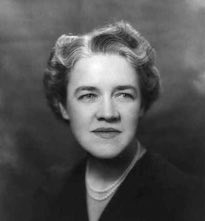 Margaret Chase Smith
Government
1897
Maine
1973
Margaret Chase Smith
Government
1897
Maine
1973

Margaret Chase Smith
Beginning her political career by assuming her deceased husband’s seat in the U.S. House of Representatives, she ran for and became a U.S. Senator from Maine. Margaret Chase Smith served four terms and was an advocate for a strong national defense.
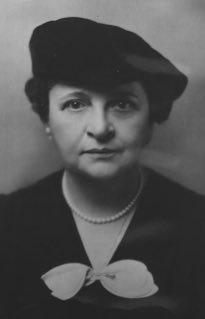 Frances Perkins
Government
1880
Massachusetts
1982
Frances Perkins
Government
1880
Massachusetts
1982

Frances Perkins
Public official and first woman to hold a Presidential Cabinet office and first woman Secretary of Labor. Appointed by President Roosevelt in 1932, she served for all of his terms, 1933-1945.
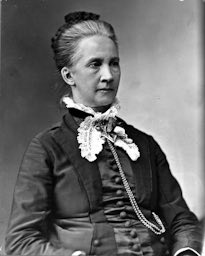 Belva Lockwood
Government
1830
New York
1983
Belva Lockwood
Government
1830
New York
1983

Belva Lockwood
First woman to practice law and argue a case before the U.S. Supreme Court (1879). Lockwood became a lawyer when she was 40 and used her knowledge to help secure women’s suffrage, property law reforms, pay equity and world peace. She helped open the legal profession to women.
 Barbara Jordan
Government
1936
1990
Barbara Jordan
Government
1936
1990

Barbara Jordan
First African American woman elected to Congress from the south and the first African American woman to deliver the keynote address at the convention of a major political party (Democratic Convention, 1976). Known as having a brilliant legal mind, Jordan became a professor and lecturer after retiring from Congress.
 Jeannette Rankin
Government
1880
Montana
1993
Jeannette Rankin
Government
1880
Montana
1993

Jeannette Rankin
First woman elected to the U.S. Congress. Rankin served two separate terms representing Montana, and was the only U.S. Representative to vote against America’s entry into both World Wars. A lifelong pacifist, she worked for peace until her death.
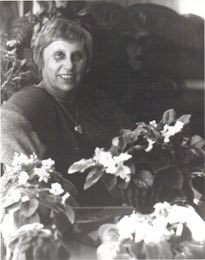 Ella Grasso
Government
1919
Connecticut
1993
Ella Grasso
Government
1919
Connecticut
1993

Ella Grasso
First woman elected a state governor in her own right. Grasso was elected Governor of Connecticut in 1974, serving until illness forced her retirement in 1980. She was also a Congresswoman and advocate for women, minorities and the elderly.
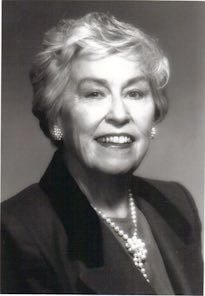 Martha Wright Griffiths
Government
1912
Missouri
1993
Martha Wright Griffiths
Government
1912
Missouri
1993

Martha Wright Griffiths
Congresswoman from Michigan 1955-1975, best known for successfully adding sex discrimination as a prohibited act in the 1964 Civil Rights Act. Griffiths also successfully led the Equal Rights Amendment passage in the House of Representatives.
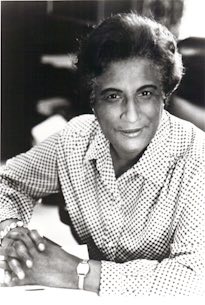 Constance Baker Motley
Government
1921
1993
Constance Baker Motley
Government
1921
1993

Constance Baker Motley
Attorney and jurist who, after performing landmark work with the NAACP with Thurgood Marshall and others, became the first African American woman elected to the New York State Senate. Motley was the first woman and African American to become Manhattan Borough President; she was the first African American women named to the federal bench.
 Shirley Chisholm
Government
1924
New York
1993
Shirley Chisholm
Government
1924
New York
1993

Shirley Chisholm
First African American woman elected to the U.S. Congress. Chisholm was also the first African American woman to receive delegate votes for the presidential nomination of a major party. A member of Congress for many years, she was also an educator and writer.
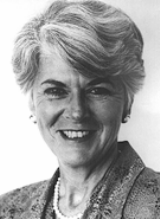 Geraldine Ferraro
Government
1935
New York
1994
Geraldine Ferraro
Government
1935
New York
1994

Geraldine Ferraro
First woman nominated by a major political party as a candidate for Vice President of the United States. Chosen to serve as the running mate of Democratic Presidential Nominee Walter Mondale in 1984, Ferraro had been an Assistant District Attorney in New York and later served in the United States Congress.
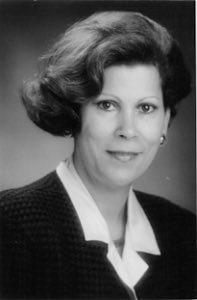 Antonia Novello
Government, Science
1944
Puerto Rico
1994
Antonia Novello
Government, Science
1944
Puerto Rico
1994

Antonia Novello
First woman and first Hispanic to be named Surgeon General of the United States. A pediatrician, Novello has used her position to alleviate suffering worldwide, especially for women and children.
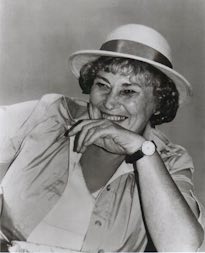 Bella Abzug
Government
1920
New York
1994
Bella Abzug
Government
1920
New York
1994

Bella Abzug
Civil rights and labor attorney elected to Congress from New York City in 1970. Abzug made her career as an advocate for women, the poor and those victimized by repression. A lifelong feminist activist, she played a major role in many national and international women’s conferences. Before her death, she chaired the Women’s Environment and Development Organization.
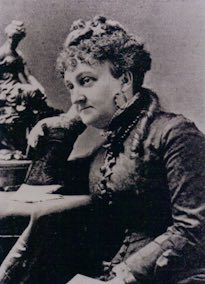 Myra Bradwell
Government
1831
Vermont
1994
Myra Bradwell
Government
1831
Vermont
1994

Myra Bradwell
America’s first woman lawyer. When denied permission to practice law in Illinois (despite passing the bar examination) because of her gender, she began publishing The Chicago Legal News, a very successful legal journal. When the laws changed in 1892, Bradwell was admitted to practice in Illinois and in the U.S. Supreme Court.
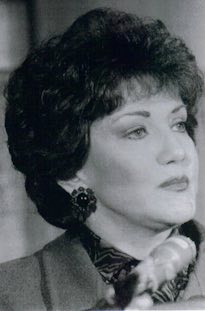 Elizabeth Hanford Dole
Government, Humanities
1936
North Carolina
1995
Elizabeth Hanford Dole
Government, Humanities
1936
North Carolina
1995

Elizabeth Hanford Dole
First woman to hold two cabinet positions as Secretary of Transportation under Ronald Reagan and Secretary of Labor for President George Bush. Dole later became President of the American Red Cross.
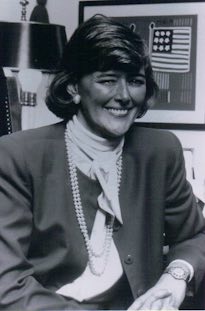 Patricia Schroeder
Government
1940
1995
Patricia Schroeder
Government
1940
1995

Patricia Schroeder
Served as the senior woman in Congress, first elected in 1972 from Colorado. Schroeder worked to establish a national pro-family policy, promoting issues such as parental leave, child care and family planning.
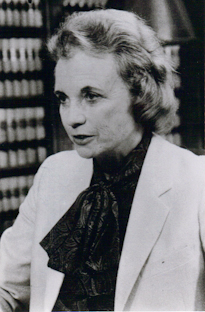 Sandra Day O'Connor
Government
1930
Texas
1995
Sandra Day O'Connor
Government
1930
Texas
1995

Sandra Day O'Connor
First woman appointed to the U.S. Supreme Court. Following successes as Assistant Attorney General and State Senator in Arizona, O’Connor was elected to Superior Court and then the Court of Appeals. She was named to the Supreme Court by President Ronald Regan.
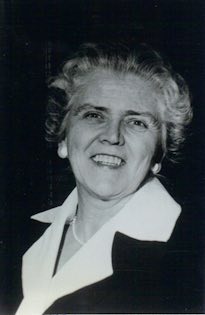 Mary A. Hallaren
Government
1907
1996
Mary A. Hallaren
Government
1907
1996

Mary A. Hallaren
Leader who, as Director of the Women’s Army Corps, championed permanent status for women in the military after World War II. Later, as Director of Women in Community Service, Hallaren advocated employment opportunities for at-risk women.
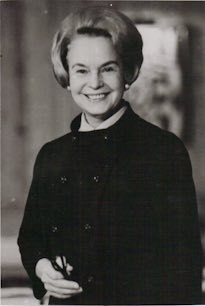 Oveta Culp Hobby
Government
1905
1996
Oveta Culp Hobby
Government
1905
1996

Oveta Culp Hobby
Shaped the development of two major government institutions as first Director of the Women’s Army Corps and first Secretary of the Department of Health, Education and Welfare. She was the first female to attain the rank of United States Colonel and the only woman to serve in President Dwight D. Eisenhower’s cabinet.
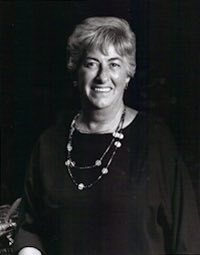 Rozanne L. Ridgway
Government
1935
Minnesota
1998
Rozanne L. Ridgway
Government
1935
Minnesota
1998

Rozanne L. Ridgway
Foreign policy advisor under six consecutive U.S. presidents from Richard Nixon to William Clinton. Beginning in 1975, she served as Deputy Assistant Secretary of State; her last appointment was Assistant Secretary of State for European and Canadian Affairs. A former Chair of the Atlantic Council of the U.S., a foreign policy think tank, her work has spanned almost four decades.
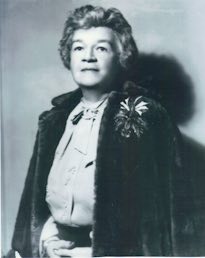 Edith Nourse Rogers
Government
1881
Maine
1998
Edith Nourse Rogers
Government
1881
Maine
1998

Edith Nourse Rogers
Massachusetts Congresswoman who introduced the “G.I. Bill of Rights” Act and Women’s Army Auxiliary Corp (WAC) legislation. The “Bill of Rights” guaranteed veterans’ health and education benefits (also small business loans). In addition, it supported research and development of prosthetic appliances. Rogers pushed for equality for women in and out of military until her death.
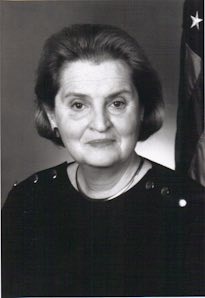 Madeleine Korbel Albright
Government
1937
Czechoslovakia
1998
Madeleine Korbel Albright
Government
1937
Czechoslovakia
1998

Madeleine Korbel Albright
First female Secretary of State and highest ranking woman in the U.S. government under President Clinton. As a professor at Georgetown University, she taught undergraduate and graduate courses in international affairs and Russian and Central and Eastern European politics. In President Clinton’s first term, she was the U.S. Permanent Representative to the United Nations and a member of the National Security Council.
 Janet Reno
Government
1938
Florida
2000
Janet Reno
Government
1938
Florida
2000

Janet Reno
As Florida State Attorney, she helped establish the Miami Drug Court and reform the juvenile justice system. Appointed by President Clinton to be the first woman Attorney General of the United States, she brought a personal and professional integrity to the office during times when issues were divided bitterly along partisan lines.
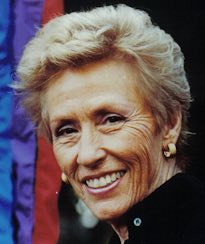 Jeanne Holm
Government
1921
Oregon
2000
Jeanne Holm
Government
1921
Oregon
2000

Jeanne Holm
In her 33 years in the Armed Forces from 1942 to 1975, Major General Holm, USAF, Retired, rose from private to two-star general. Her promotion in 1973 made her the first woman in the history of the U.S. armed forces to achieve the rank of major general. Her work to open ROTC and the military academies to women gave educational benefits and the opportunity for a professional military career to women from all walks of life.
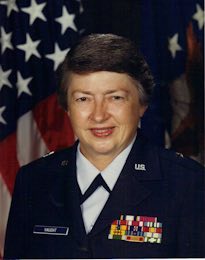 Wilma L. Vaught
Government
1930
Illinois
2000
Wilma L. Vaught
Government
1930
Illinois
2000

Wilma L. Vaught
One of the most decorated military women in U.S. history, Brigadier General Vaught, USAF, Retired, broke through many gender barriers to achieve a series of “firsts” that paved the way for military women serving today. She may be best known and most revered for her 12-year quest to permanently honor women in the military, raising over $45 million to build a major national memorial. The stunning 33,000 sq. ft. Women in Military Service for America Memorial facility and education center stands today at the gateway to Arlington National Cemetery.
